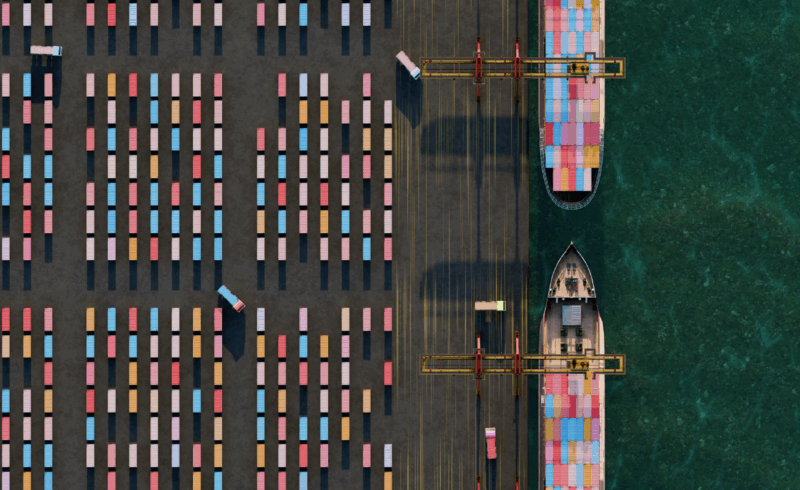The escalating trade tensions between the United States and the world have evolved beyond mere financial implications.
For North American commodities firms, the volatility introduced by tariffs has emerged as a defining challenge – not only for global supply chains, but also for talent acquisition and workforce strategy.
While tariffs have long been part of trade policy, their sudden application and withdrawal over the past several years have upended planning cycles and created a ripple effect throughout operational, logistical, and human capital functions.
The intersection of tariff policy and talent strategy has never been more pronounced. As Ron Godier, CEO of Momentum HCA & Intalegence put it:
"Businesses can’t afford to ‘wait and see’ on leadership, culture, or specialist hiring."
The need for speed and adaptability has placed HR and workforce planning at the heart of trading operations.
In this article I share how talent dynamics have been playing out across 5 key commodity sectors.
1. Soybeans
When China imposed retaliatory tariffs on US soybeans in 2018, exports plummeted. Trading firms pivoted quickly, rerouting flows toward Europe and Southeast Asia.
Logistics coordinators, freight strategists and marine operations professionals were suddenly in high demand. Trading houses had to recruit or reassign regional experts in Brazil and Argentina – now key sourcing hubs – to manage new market dynamics and freight pricing.
2. Crude Oil
Chinese tariffs halted imports of US crude oil, erasing a critical arbitrage play. This led to sharp volatility in global freight and energy futures.
Price risk managers and data analysts were brought in to reevaluate exposure across disrupted routes. With internal resources stretched thin, firms leaned on freelance consultants and nearshore RPO providers to handle urgent modeling tasks.
3. Aluminum & Steel
US tariffs spiked prices for steel and aluminium, creating procurement chaos for manufacturers and traders.
Procurement specialists and trade compliance professionals were needed to renegotiate contracts and source alternatives in Canada, Mexico and Asia. In response, many firms created remote “tariff-response pods” to deal with constant regulatory updates and pricing volatility.
4. Corn and Agricultural Products
With China exiting US corn markets, domestic oversupply triggered falling prices and storage bottlenecks.
Commodity firms raced to hire inventory planners and freight analysts capable of managing warehousing and timing market re-entry. Freelancers with niche agricultural expertise were especially in demand to navigate fluctuating demand cycles.
5. Rare Earths
China’s threat to restrict rare earth exports created a geopolitical shock to US electronics, automotive and defense sectors.
Strategic sourcing analysts and trade policy specialists were tasked with diversifying supply chains toward countries like Australia and Canada. Firms began proactively mapping talent near emerging supply zones to future-proof their operations.
Adapting to a New Normal
Across commodities, hiring volatility has taken a toll. It was recently reported that sectors hit by tariffs saw 18% of firms implement hiring freezes, with 36% more considering it. This not only delays hiring for critical roles but erodes institutional knowledge during turbulent times.
At the same time, firms are rethinking location strategies. Evolving trade routes require new regional talent pools matched to time zones, skillsets, and regulatory needs. For example, firms are increasingly setting up hybrid operations in Southeast Asia or Latin America to access localized expertise.
Tariff-triggered supply chain instability has also strained internal capacity. Increased sourcing complexity and input volatility are pushing firms to seek talent skilled in scenario modeling, cross-border compliance and adaptive logistics.
Talent Strategy: The New Competitive Edge
Tariff volatility is now both an operational and human capital challenge. The firms that will thrive are those that:
- Invest in adaptive workforce strategies, such as external hiring partners or offshore operations.
- Build regional talent intelligence, aligning recruitment with shifting supply lines.
- Deploy agile HR systems, ready to scale analytics, logistics and compliance functions on short notice.
- Balance short-term contracting with long-term capability building, especially in high-impact areas like energy risk, agribusiness logistics and critical minerals sourcing.
As global trade patterns continue to shift, talent is now a front-line strategy. In the commodities sector, where every margin point matters, the agility to match market moves with human capital deployment may well determine who leads and who lags.
And, in an era where tariffs can be imposed or rescinded overnight, commodities firms must view talent not just as a resource – but as a hedge against uncertainty.
Proco Group is an international executive search and advisory partner to commodity trading firms around the world. Our deep roots in key commodity hubs empower our clients with the talent insights and network they need to make the right hiring decisions.
For a conversation about your firms’ tariff’s talent strategy, please don’t hesitate to get in touch.
Tori Tootell

Senior Researcher | Commodities | North America
E: tori.tootell@weareprocogroup.com T: +1 346 347 3739




